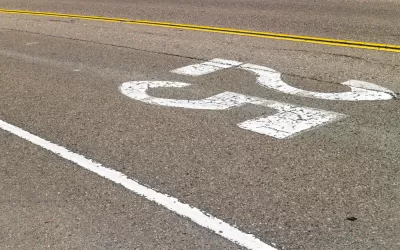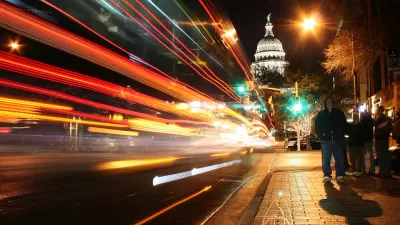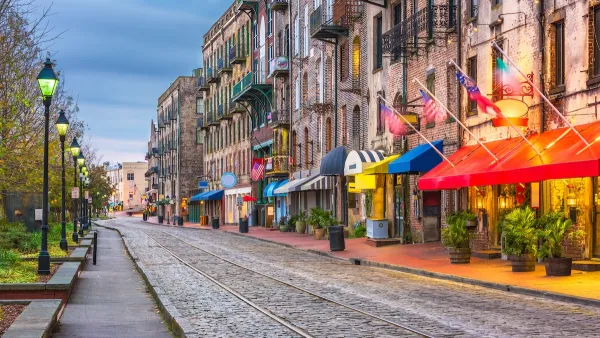A decision by the city of Austin to support lower speed limits on some city streets will remain a symbolic gesture until the state allows local governments to establish their own speed limits.

"The Austin City Council asked staffers Thursday to review city speed limits, with the goal of reducing the speed limits on some streets to make them safer," reports Katie Hall.
But there's a catch. The action by the City Council comes with the caveat that the city still needs support from the idea from the state. So, reports Hall, "the council [also] said the city would support efforts in the Texas Legislature to lower the default speed limit on Texas roads from 30 to 25 mph."
Such legislation has been a tough sell in the Texas Legislature, and a "state bill proposing the same change was not successful during the last legislative session."
Texas isn't the only state around the country holding up the Vision Zero and speed limit reduction actions of local governments. Angie Schmitt followed on the news from Austin by noting that Texas is far from the only state in the country that has the same power over local governments. Other states, however, like Massachusetts, New York, and Washington all made decisions recently to give local governments the power to lower their speed limits. City officials in Portland are still waiting for the same power from the state of Oregon.
Jay Blazek provides additional commentary on the Austin City Council's decision, arguing for the benefits of lower speed limits to cars and drivers, not just pedestrians and bikers. Blazek's arguments respond to some of the dissenting opinions regarding Austin's recent decision.
FULL STORY: Austin City Council moves to reduce speed limits on some roads

Maui's Vacation Rental Debate Turns Ugly
Verbal attacks, misinformation campaigns and fistfights plague a high-stakes debate to convert thousands of vacation rentals into long-term housing.

Planetizen Federal Action Tracker
A weekly monitor of how Trump’s orders and actions are impacting planners and planning in America.

In Urban Planning, AI Prompting Could be the New Design Thinking
Creativity has long been key to great urban design. What if we see AI as our new creative partner?

Cal Fire Chatbot Fails to Answer Basic Questions
An AI chatbot designed to provide information about wildfires can’t answer questions about evacuation orders, among other problems.

What Happens if Trump Kills Section 8?
The Trump admin aims to slash federal rental aid by nearly half and shift distribution to states. Experts warn this could spike homelessness and destabilize communities nationwide.

Sean Duffy Targets Rainbow Crosswalks in Road Safety Efforts
Despite evidence that colorful crosswalks actually improve intersection safety — and the lack of almost any crosswalks at all on the nation’s most dangerous arterial roads — U.S. Transportation Secretary Duffy is calling on states to remove them.
Urban Design for Planners 1: Software Tools
This six-course series explores essential urban design concepts using open source software and equips planners with the tools they need to participate fully in the urban design process.
Planning for Universal Design
Learn the tools for implementing Universal Design in planning regulations.
Appalachian Highlands Housing Partners
Gallatin County Department of Planning & Community Development
Heyer Gruel & Associates PA
Mpact (founded as Rail~Volution)
City of Camden Redevelopment Agency
City of Astoria
City of Portland
City of Laramie





























